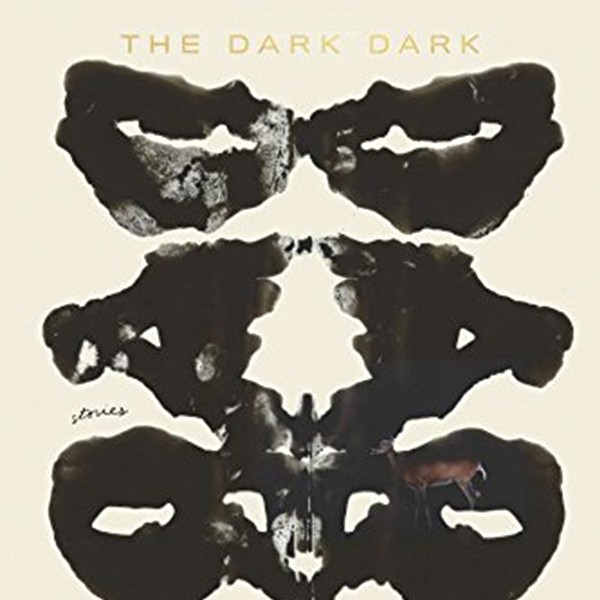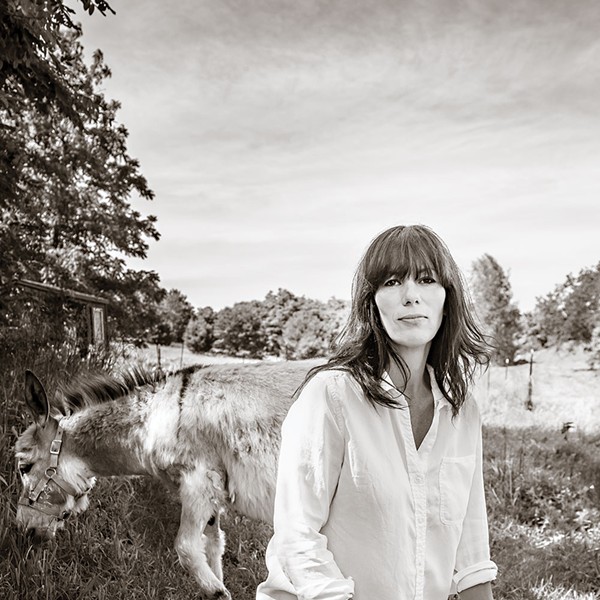With a newfound zeal, he then took it upon himself to revive the moribund company newsletter. He cannily undertook a comprehensive profile of the warehouse, necessitating several trips out to Long Island. Next was a survey of the office building’s other inhabitants. The small architectural firm was somewhat uncooperative, but the spokesman for the Croatian fraternal society was effusively friendly, offering him coffee and chatting away for the better part of an hour. The sixth floor was the headquarters of Caleb Enoch Estensen, apparently a well-regarded fabric designer, a conspicuous presence garbed in long, colorful scarves and foppish hat, who could often be glimpsed—somewhat incongruously—consuming the homey eggs, hash browns, and coffee at the Downtown Diner.
On the surface, it would appear that he and Charlotte wouldn’t have all that much to do with each other. Yet, probably owing to their close proximity, some chatting ensued. To his surprise, Charlotte could be very funny. She too cocked an ear to the public-address announcements. To their mutual astonishment, both shared the same guilty pleasure: The New Interns (1964), starring Telly Savalas and Stefanie Powers. They began making brief coffee excursions to the Downtown Diner. A few times they went out for dinner. And a slow, gradual bond developed, evolving into a comfortable, platonic office friendship. Once, without preamble, she informed him that she had absolutely no romantic designs on him whatsoever. Nor did he have any ambitions to alter the friendship’s contours.
They talked each other into running a personal ad. Both were unattached. What was there to lose? The ads ran the same week and coincidentally both had their respective dates the same Friday night. His was a hideous mismatch with an oddball woman who spoke out of the side of her mouth. He arrived back in his apartment—demoralized—at 7:30, called to leave a message with Charlotte, and discovered that she, too, was home, having had an equally miserable experience.
The deepening friendship was marred only by the undercurrent of her sporadic moodiness. She could be rude to coworkers, occasionally scathing to the design department, short with interns. One morning a comment he made was met with Charlotte’s rude silence. Later that day a joke was received with annoyance. The next day his hellos were disregarded. He vowed to suspend contact and let her make the first move, which never came. For a few weeks Charlotte’s cubicle became a sort of netherworld, an unapproachable structure.
It came time for the Christmas party, a ritual so overtly suburban, so redolent of, say, Dagwood Bumstead, that he couldn’t believe he was actually set to be a participant. But there he was. Over the thunderous strains of Talking Heads, Charlotte suddenly approached. “You’re a really nice man,” she said to him, voice quavering, evidencing a vulnerability he hadn’t known she’d possessed. “And I’m sorry if I offended you,” she concluded. They hugged, all forgotten.
When spring made its first, tentative appearance in the city, the department, en masse, decided to go out for Friday night drinks. He usually took great pains not to see most of his colleagues after work, but this night he relented and partook of the noisy, chaotic revelry: a cavernous downtown bar, lots of hard-to-hear snippets of conversations, chair hopping.
What then transpired was, when all was said and done, somewhat inexplicable. Neither he nor Charlotte had all that much to drink. At some point the two of them drifted away from the main group and sat, just the two of them, side by side at the bar. The hours passed; confidences began to flow.
He sketched out his family saga: the authoritarian, erratic father, the death of a favorite uncle. The disastrous college romance. A bout of depression.
Charlotte had been teased steadily throughout school. In sixth grade a particularly unfortunate sweater, augmented with dangling, colorful little beads, earned her the lasting appellation “Milky the Cow.” She was now gripped by constant feelings of inadequacy, insignificance. Therapy had proved useless. Her parents were hellbent on her marrying, starting a family. “And I think,” she said, her voice crackling, “I’m going to cry now.” And then, matter-of-factly, she invited him to come spend the night at her Brooklyn Heights apartment; a direct offer, no hint of coquettishness, no come-hither.
Their cab crossed the Brooklyn Bridge, the hour very late, passing the giant Jehovah’s Witnesses Watchtower building. Brooklyn Heights was quiet; frenetic Manhattan behind them now. His extreme exhaustion, the unexpected scenario, combined to form an air of unreality.
















